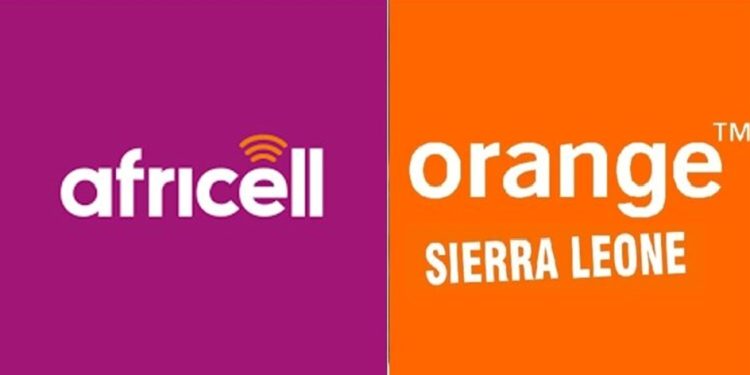By Hassan Osman Kargbo
Sierra Leone, like many developing nations, faces numerous challenges in its efforts to foster economic development and improve the quality of life for its citizens. One of the most pressing issues is the country’s poor network connectivity. In an increasingly digital world, the inability to access reliable internet and phone networks has become a significant hindrance to progress. Whether for education, business, or daily communication, Sierra Leone’s inadequate network coverage continues to frustrate citizens and deter potential investors, leaving people to struggle in silence.
The Impact on Education
The consequences of unreliable network connectivity are particularly evident in Sierra Leone’s education sector. Education is the cornerstone of a nation’s future, and in a country where many students already face significant barriers to quality learning resources, the lack of reliable internet access only deepens the divide. The COVID-19 pandemic highlighted these challenges on a global scale. As schools and universities around the world shifted to online learning, Sierra Leone’s students found themselves at a severe disadvantage. The country’s already fragile network infrastructure made it nearly impossible for many students, particularly those in rural areas, to access online classes or educational resources.
Even in the post-pandemic world, many students in Sierra Leone continue to grapple with unreliable internet connections. While some schools have managed to provide digital tools like laptops and tablets, the lack of stable network coverage undermines these efforts. Students in rural and remote areas, where internet access is scarce or non-existent, are left behind, unable to take advantage of the educational opportunities that are available to their peers in more urbanized regions. This digital divide further exacerbates educational inequalities, leaving many young people without the skills they need to compete in an increasingly digital world.
Challenges for Businesses and Entrepreneurs
Beyond education, poor network connectivity also presents a significant obstacle for businesses and entrepreneurs in Sierra Leone. In today’s globalized economy, the internet plays a crucial role in enabling businesses to connect with customers, expand their reach, and operate efficiently. Unfortunately, for many businesses in Sierra Leone, the digital economy remains out of reach due to slow internet speeds, frequent service outages, and unreliable network coverage.
Entrepreneurs looking to establish an online presence, engage in digital marketing, or even operate basic e-commerce platforms are often thwarted by network issues. Service disruptions can lead to missed opportunities, delayed transactions, and difficulty in accessing global markets. Small and medium-sized enterprises (SMEs), which form the backbone of Sierra Leone’s economy, are particularly vulnerable. With limited resources to invest in backup services or alternative solutions, these businesses find themselves at a disadvantage compared to their counterparts in other countries where reliable connectivity is the norm.
The Daily Struggles of the Average Citizen
For the average citizen, poor network connectivity impacts almost every aspect of daily life. In a country where mobile phones are the primary means of communication, the frustration of dealing with frequent call drops, low signal strength, and long periods of network unavailability is an all-too-common experience. Personal and professional communication becomes a challenge, with people often unable to make or receive calls, send text messages, or access the internet.
In addition, the rise of digital services for banking, government transactions, and social interaction has left many Sierra Leoneans struggling to keep up. Access to essential services like government portals, online banking, and even healthcare services is increasingly reliant on digital platforms, but poor network coverage makes it difficult for many citizens to fully participate in the digital age. Those living in rural areas, in particular, face additional barriers in accessing these services, further contributing to inequality.
The Need for Change
The situation calls for urgent action. To address the ongoing issue of poor network connectivity, there is a critical need for investment in network infrastructure and technology. Expanding mobile phone towers and internet access to underserved and rural areas is one of the most pressing needs. The government must also work with private companies to improve internet speeds and ensure that network service providers meet the demand for reliable coverage.
Public-private partnerships (PPPs) can play a crucial role in funding the infrastructure upgrades needed to expand and enhance network connectivity across Sierra Leone. Through strategic collaboration, both public and private entities can work together to ensure that the necessary resources are allocated to bridge the digital divide. Furthermore, the government must create policies that support the expansion of digital services across the country, ensuring that all citizens, regardless of their geographical location, can access the benefits of reliable internet connectivity.
Conclusion
The poor network connectivity in Sierra Leone remains a significant barrier to progress, affecting everything from education to business and daily communication. For the country to move forward and fully embrace the digital economy, a concerted effort is needed to improve network infrastructure, enhance digital services, and ensure that all citizens can access the opportunities that reliable connectivity offers. Without this investment in the nation’s future, the people of Sierra Leone will continue to face the struggle of unreliable networks, stifling their potential and limiting the nation’s growth in an increasingly digital world.
Sierra Leone has the potential to thrive in the digital age, but it cannot unlock this potential without addressing its network connectivity challenges. The time to act is now. Only through concerted efforts to improve connectivity will Sierra Leone be able to bridge the gap, ensuring a more equitable future for all of its citizens.











